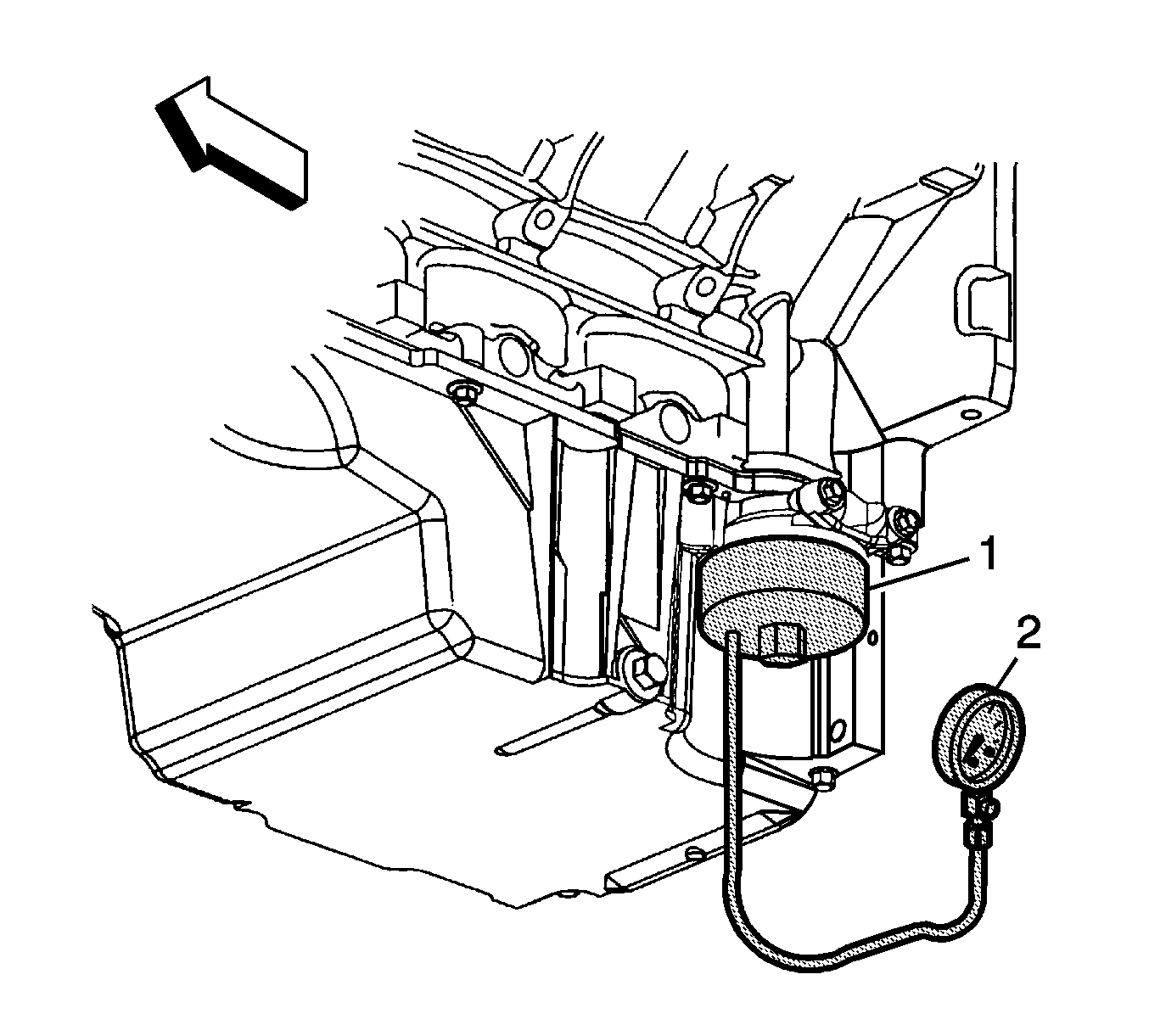Tools Required

- With the vehicle on a level surface, run the vehicle for a few minutes, allow adequate drain down time, 2-3 minutes,
and measure the oil level.
- If required, add the recommended grade engine oil and fill the crankcase until the oil level measures full on the oil level indicator.
- Run the engine briefly, 10-15 seconds, and verify low or no oil pressure on the vehicle gage or light.
- Listen for a noisy valve train or a knocking noise.
- Inspect for the following conditions:
| • | Oil diluted by water or glycol antifreeze |
- Remove the oil filter and install the
EN-47971
(1) .
- Install the
J 21867
(2), or equivalent to the
EN-47971
(1).
- Run the engine and measure the engine oil pressure.
- Compare the readings to
Engine Mechanical Specifications
.
- If the engine oil pressure is below specifications, inspect the engine for 1 or more of the following conditions:
| • | Oil pump-to-engine block bolts loose |
| • | Oil pump screen loose, plugged, or damaged |
| • | Oil pump screen O-ring seal missing or damaged |
| • | Malfunctioning oil pump pressure relief valve |
| • | Excessive bearing clearance |
| • | Cracked, porous, or restricted oil galleries |
| • | Oil gallery plugs missing or incorrectly installed |
- If the oil pressure reading on the
J 21867
, or equivalent, is within specifications, inspect for the following conditions:
| • | Plugged or incorrect oil filter and/or malfunctioning oil bypass valve |
| • | The bypass valve is now internal to the oil filter. |
| • | Malfunctioning oil pressure gage or sensor |

